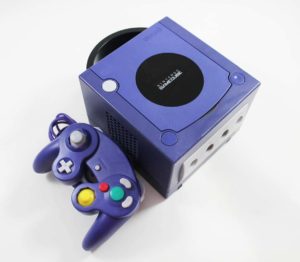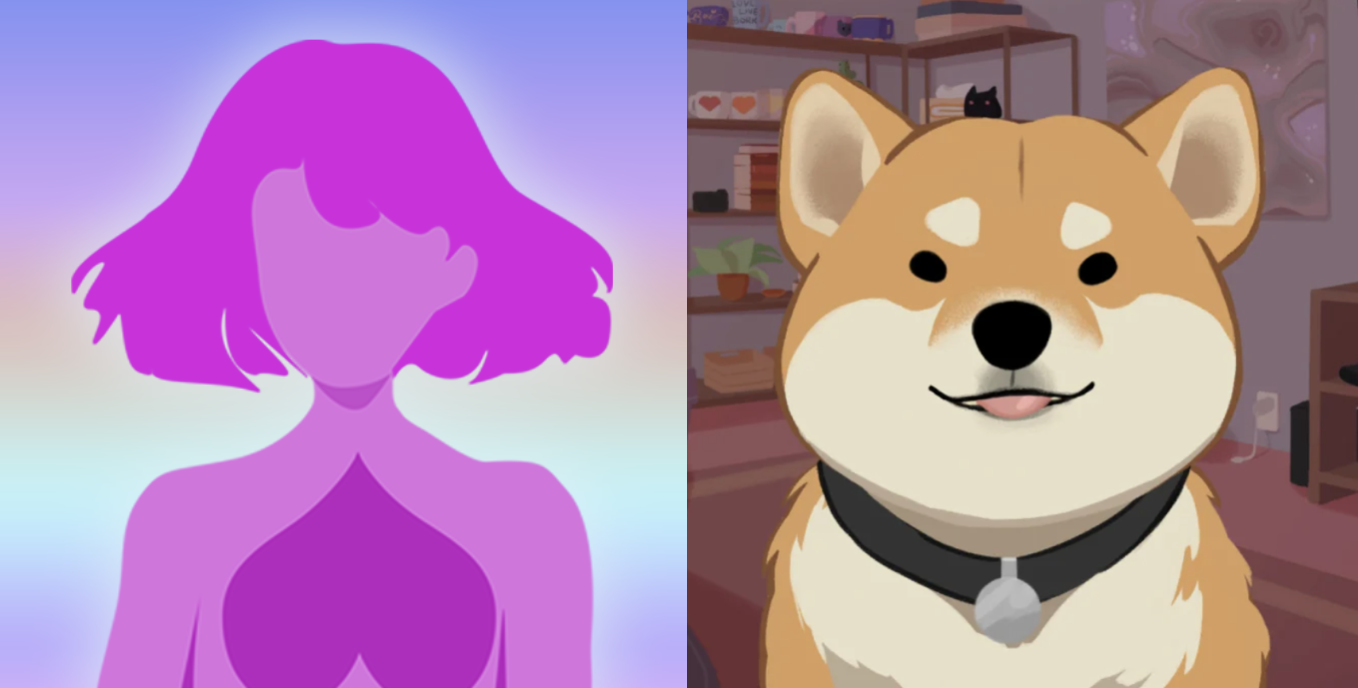
Body positivity isn’t typically the first thing we think of when it comes to gaming. When browsing the App Store however, it doesn’t take long to find content that encourages users to alter their image through distortion, retouching and even weight modification, as opposed to resources which promote a healthy body image. It’s disheartening to see that apps like this have become such a normalised part of our culture, particularly as so many young and impressionable audiences are the ones downloading them.
Whilst it’s not impossible to find games that do assist with mindfulness and body acceptance, there are seldom times when they’re given as much attention in the mainstream and rarely none that put a heavy emphasis on playing. It’s a particularly interesting angle from a development perspective, as it’s been shown in the past how many psychological benefits there are when forming new habits through gamification.
Enter Lauren Clinnick and Lucy Morris, two Melbourne game developers working respectively on ‘Body Posi’ and ‘Best Friend Forever’. They were kind enough to chat with me and answer a few pressing questions exploring the conversation around representation in the gaming industry, as well as how their shared experiences have influenced the direction of their titles.
Taking Back Your Own Power
‘Body Posi’ is described as a playful app which helps users establish healthier relationships with their bodies. The game presents daily motivational tarot cards, contributed in part by guest artists including Bei Badgirl, and is complimented by encouraging and well thought out messages. The deck is used as a guide to foster positive connections with the self and provide varying mindful tasks for players to carry out after each session. There is also a more in-depth analysis of how these tasks can prove useful attached to each card, which is comprised of five elements relating to body positivity in the ‘Posiverse’ section of the app.
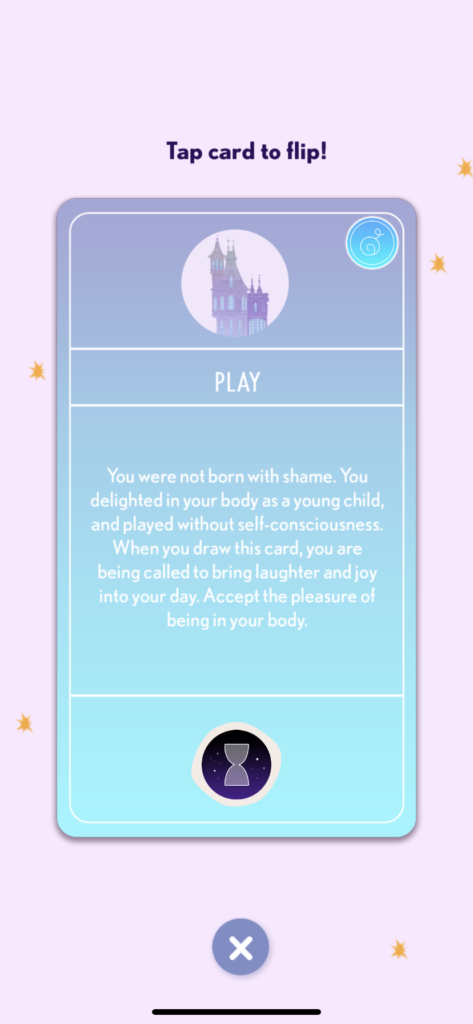
It’s staggering to see how many people are in need of these tools, but with the stigma we’ve cultivated around body image historically, these stats unfortunately aren’t surprising. Control is too often taken away from those who do want to take healthy steps towards accepting their body and for many out there, that journey can feel like an impossible feat. Self help apps like ‘Body Posi’ are a way for users to take back their own power in a safe space and be in charge of the way they see themselves.
There’s also a number of apps available that help users track eating disorder recovery specifically, such as ‘Record Recovery’. The app lets players record their moods, practice mindfulness surrounding food, as well as assist in planning for future therapy visits. It’s important to note that these apps themselves are not substitutes for professional services or therapies. It’s recommended that users seek professional advice for any serious concerns surrounding body image. They are however, useful resources and can grant solace in an easily accessible way to all who play.
Diversity In Gaming
As far as the conversation around body positivity goes in a broader sense, there are plenty of insightful interviews with prominent advocates in the community that will quench your thirst for this knowledge. In gaming however, it’s a much quieter scene.
‘The conversation around ‘diversity in games’ often gets reduced to basic talking points around female characters or creators, but there is so, so much more to being inclusive and intersectional than just the representation of women. We’re starting to see some change around it, but progress is slow,’ ‘Body Posi’ developer and co-creator Lauren Clinnick explains. For those interested in hearing more on Lauren’s background and inspiration behind creating the app, she’s written a lengthy blog post about it on her company website, Lumi Interactive.

Our lived experiences dictate so much of the art we create and put out into the world and it’s vital for diverse voices in gaming to be a part of that. Lucy Morris, Director at Starcolt Games, hopes that studios will start to create ‘characters that deviate from the idealised form we’ve all become accustomed to seeing in our entertainment’ and explains that including more customisation options and character models is something she’s really excited for in the future.
I feel it necessary to draw attention to the conversation around ‘The Last Of Us 2’ and it’s representation of Abby’s body type. Many players were in disbelief that a female character could be as muscular as she was and went to great lengths to debunk her ability to build the muscle mass she has. The underlying concern for a lot of these people, was that Abby didn’t look the way they wanted her to and were bothered that she wasn’t desirable or attractive to them.

The subsequent social media posts from women who share the same physique and have struggled to accept their body types in the past has been such an interesting response to watch unfold. Developers have the opportunity to not only include these lesser seen body types in the games they produce, but have those who identify with them become active participants in their creations. Gaming is one of the only mediums that has this unique ability and allows for a greater sense of community and connection amongst players.
Why Our Games Need Representation
Aside from on screen representation, it’s also important that we see that same effort being utilised behind the scenes. Morris is a strong advocate for inclusitivioty in her workplace and has made sure that diversity was thought about in the initial stages of developing ‘Best Friend Forever’.
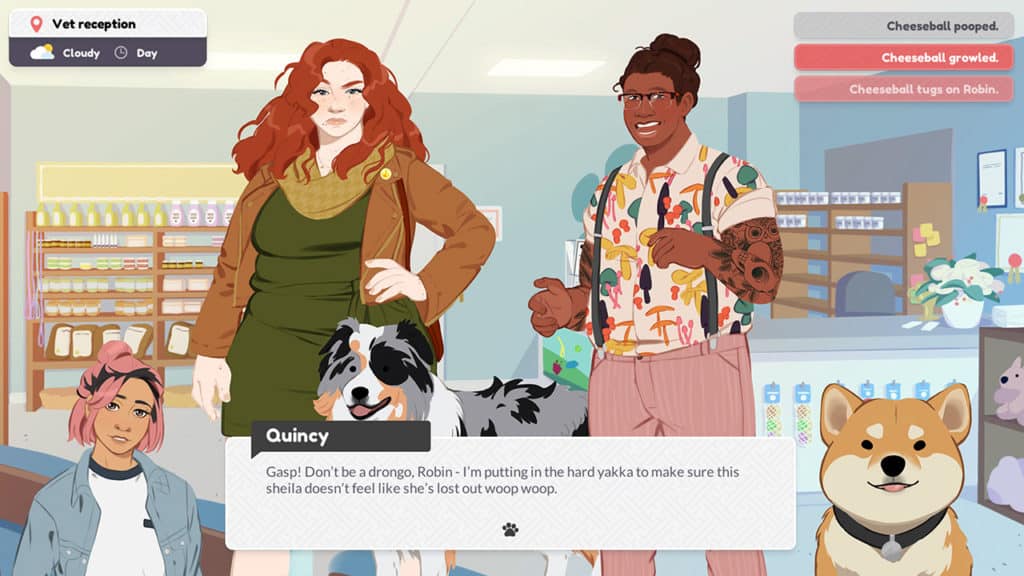
‘Our studio is made of people with very different body shapes, heights, and sizes, and we all have our own hangups due to the media we’ve consumed for years. Wanting our game to be a place that doesn’t impact players negatively means we’ve included shapes that we don’t always see in media, but almost always see on the street. The result is that people see their likenesses in ‘BFF’, as characters that look like them. It helps that empathetic connection.’
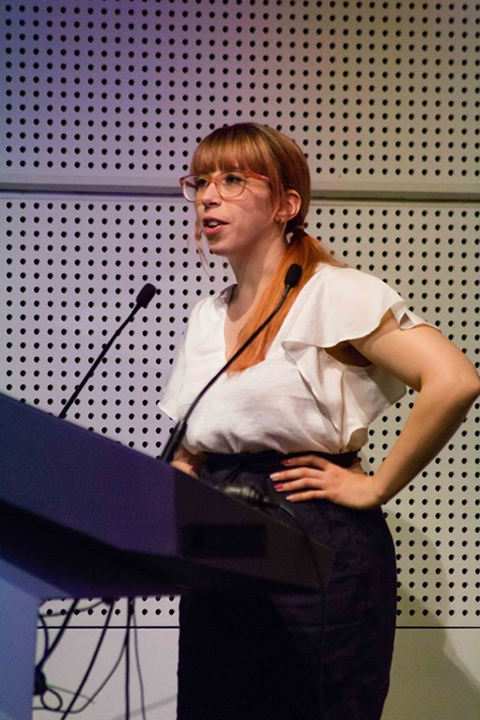
Lucy also goes on to explain how she feels diverse body types have been represented within the games she has personally played.
‘I think we’ve definitely seen some great examples of different body shapes in more recent years – titles like Overwatch that have a great variety of shapes, notably in characters like Zarya and Mei, and Later Daters that romanticise older bodies. Mostly, we want to see a wide variety of silhouettes in games – we have a long way to go, and there are still a lot of unhealthy standards perpetuated by the games industry.’

There is definitely a ways to go in terms of accurate and empathetic representation in the gaming sphere, but it’s lovely to see that there are steps being taken in the right direction.
Thank you so much to Lucy Morris and Lauren Clinnick! These women are a real driving force in the Australian games industry and seeing the strides they’re making in their own projects is super motivating.
‘Body Posi’ is currently in its beta phase on the App Store and you can register to play test it here. You can also follow their Instagram account for inspiring and thought provoking posts. Whilst there is no set release date for ‘Best Friend Forever’, there is a free demo currently available on Steam. You can find out more about Starcolt Games on their official website!


